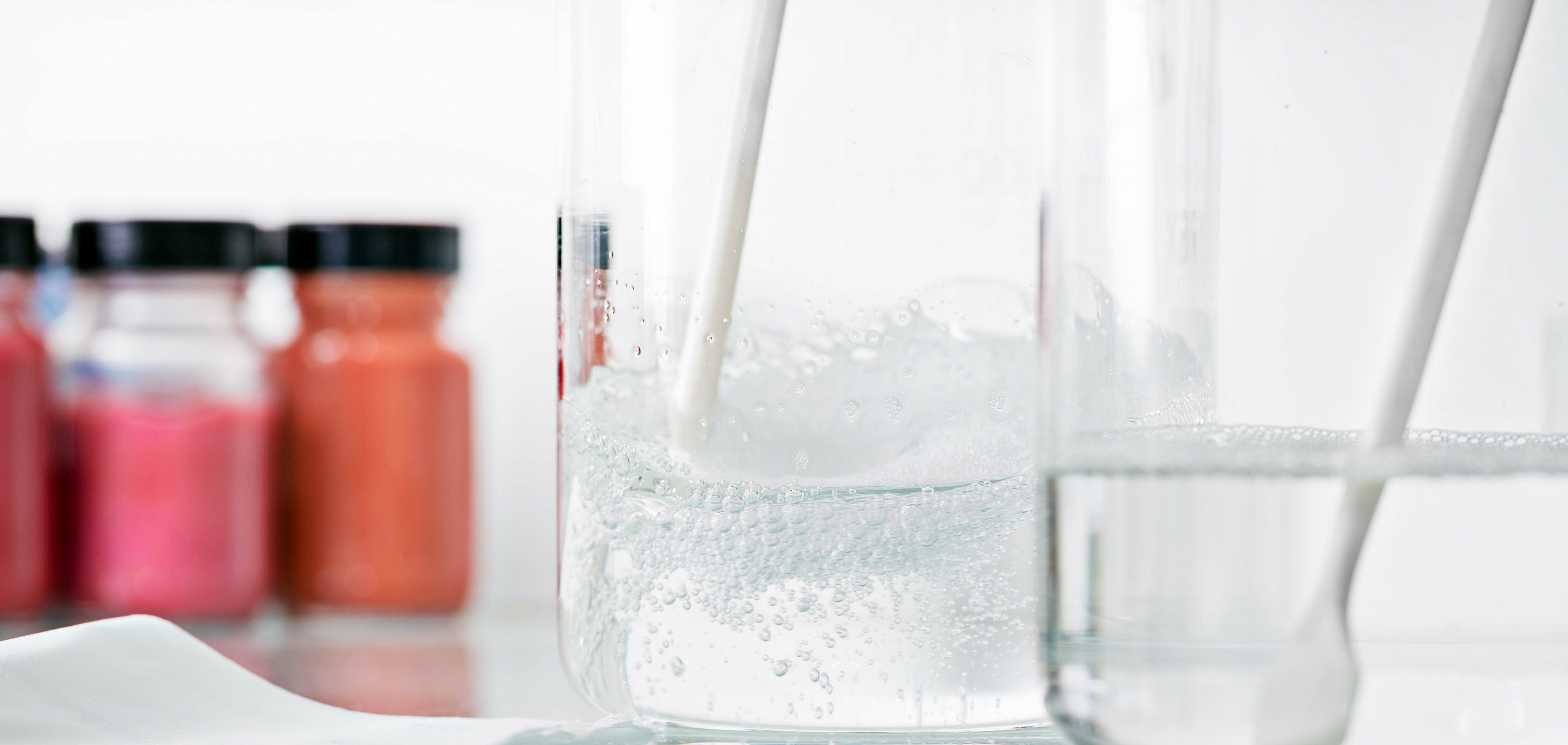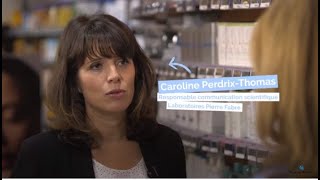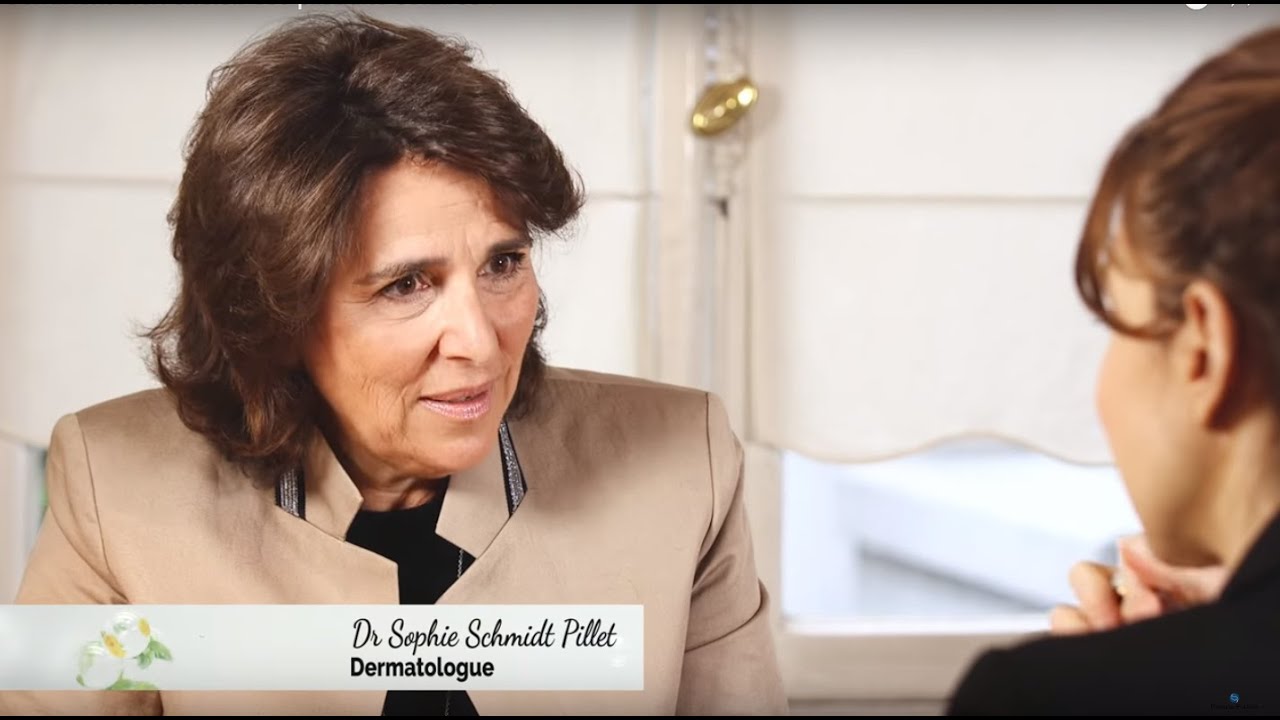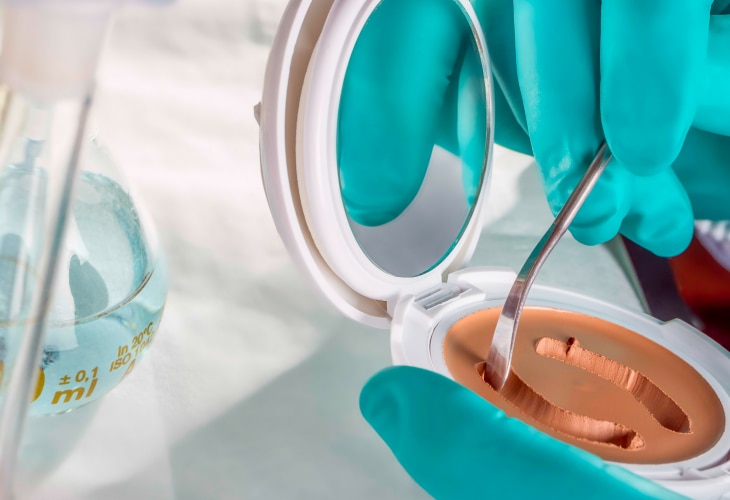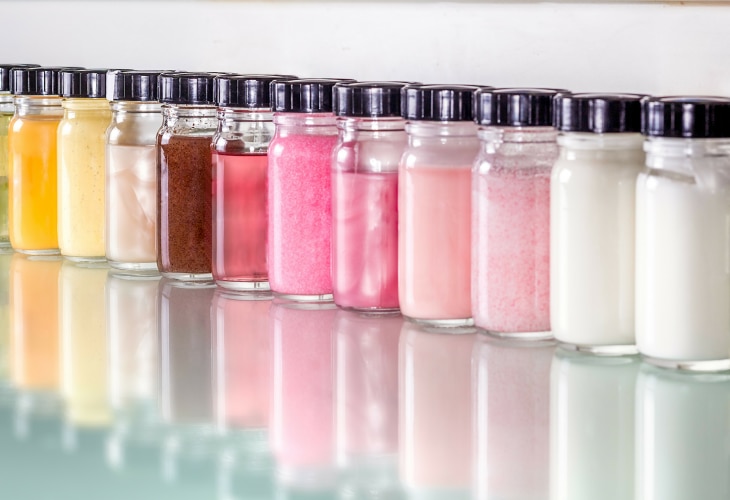Safe ingredients
Apprehension about controversial ingredients is at the heart of our concerns. Our goal is to provide you with tangible and scientific information on these ingredients to reassure you, thus helping you better understand them and guiding you in your choices.

Cosmetics ingredients are not chosen at random
The European Cosmetics Regulation is reviewed very regularly, five to six times a year, to take account of scientific progress. Decisions are adopted by the health care authorities of the Member States further to proposals from the European Commission. They are based on the opinions of independent European experts from various Member States who come together for meetings of the Scientific Committee on Consumer Safety (SCCS).
Role and classification of the ingredients used in dermo-cosmetics products
| Sun filter | Silicones | Emollients | Preservatives (antimicrobial) |
|---|---|---|---|
| Titanium dioxide | Cyclomethicone | Mineral oils | Propylparaben |
| Cyclopentasiloxane | Butylparaben | ||
| Dimethicone | Methylparaben | ||
| Ethylparaben | |||
| Phenoxyethanol |
To find out more about the ingredients used in Pierre Fabre Group products and brands, contact us
PRESERVATIVES
Preservatives prevent products from being contaminated by mold and bacteria. Without them, products can deteriorate and pose a real risk to consumers when used.
Parabens:
-
Their role: Despite the rumors and false information, they are very effective preservatives that rarely produce allergic reactions. They are found naturally in strawberries, carrots, onions and royal jelly, for example.
- For your safety: Parabens are the ingredients most analyzed by toxicology experts, since there are a large number of them and they are used in many products (foodstuffs for example). Only four preservatives are used in cosmetics: METHYLPARABEN, ETHYLPARABEN, PROPYLPARABEN and BUTYLPARABEN. Suspicions of them being endocrine disruptors appear to be unfounded since no study has shown any effect on hormonal systems.
Phenoxyethanol:
- Its role: PHENOXYETHANOL is an effective and very well-tolerated preservative. It is found naturally in green tea and chicory, for example. Many accusations have been leveled against it, often unfounded and not based on any conclusive scientific data. In particular, it is accused of causing liver problems, if ingested. But remember, dermo-cosmetics products in the Pierre Fabre Group brands are intended to be applied on the skin and do not pass through the skin barrier.
- For your safety: The Scientific Committee on Consumer Safety (SCCS) confirms that phenoxyethanol is absolutely safe for application on the skin, for all age groups including infants, with the exception of application to the diaper area.

What is a preservative?
To meet your expectations, the dermo-cosmetics brands of the Pierre Fabre Group no longer useparabens in new products but other preservatives may be used at a correct dosage to preserve the product and ultimately ensure your safety.

Sterile cosmetics
For people with hyper-sensitive or intolerant skin who want to avoid preservatives altogether, Pierre Fabre Group has invented Sterile Cosmetics, the only alternative of its kind in the world. These formulas have a manufacturing process that eliminates the need for preservatives through an exclusive, fully air-tight closure system.
SUN FILTERS
- Their role: Sun filters are used to effectively protect the skin against the dangers of the sun and above all help prevent the occurrence of skin cancers. Chemical sun filters are suspected of being endocrine disruptors and of damaging the marine environment. Nano-form sunscreens such as Titanium Dioxide (Ti02) are also suspected of passing through the skin barrier due to their small size.
- For your safety: To date, their risk to health has not been scientifically proven. Various controversies in the media have cast doubt, but it is essential to protect against UV rays: According to the WHO, in 2017, 1/3 of all cancers were skin cancers linked to sun exposure
Sun filters, their type and maximum usage concentrations (nano or non-nano) are governed by the European regulation and are regularly reviewed for their safety by an independent entity: the Scientific Committee on Consumer Safety (SCCS).
Our studies have demonstrated that the Nano Titanium Dioxide used by the Pierre Fabre Group does not significantly enter into the skin and presents no danger of inhalation. It is therefore safe even in its spray form.
The Eau Thermale Avène and A-DERMA brands (Pierre Fabre Group) have opted to use only four sun filters in a reduced concentration, to guarantee optimal sun protection for the skin, while limiting the impact on the marine environment.
We have also improved the biodegradability of our formulas by removing silicones and sun filters, that dissolve in water.

How to choose your sun care products
SILICONES
- Their role: Silicones (CYCLOPENTASILOXANE, DIMETHICONE, CYCLOMETHICONE, etc.) have excellent sensory properties: they improve the feel (slick and smooth sensation) and finish (powdered, drier and mattifying). They are now suspected of lingering in the aquatic environment, smothering the skin and hair and being endocrine disruptors, although no scientific publication backs up these claims.
- For your safety: Silicones are considered safe ingredients by the international regulatory authorities including the Scientific Committee on Consumer Safety (SCCS). They are chemically inert, well tolerated by the skin, non-comedogenic, non-irritating and non-allergenic.
- The Pierre Fabre Group has opted to only use Cyclopentasiloxane (D5) and Cyclomethicone in reduced concentrations. They have been found to be safe but suffer from the bad reputation of Cyclotetrasiloxane (D4), which we do not use and which is prohibited.
MINERAL OILS
- Their role: Mineral oils moisturize and improve the feel and application of a cosmetics product - they have been used in cosmetics for decades. They are accused of being carcinogenic as they are likened to industrial mineral oils.
- For your safety: The risk-free nature of these oils was recently confirmed by the German Federal Institute for Risk Assessment (BfR). They are absolutely risk-free for consumer health and are also known for their excellent tolerability in addition to their protective and moisturizing properties.
- At Pierre Fabre, the mineral oils used are extremely pure and of pharmaceutical quality. Under no circumstances would we use industrial mineral oils.


